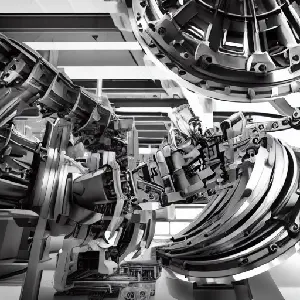Thinking mechanically
Published:
 The concept of “thinking mechanically” refers to the idea that our thoughts, actions, and behavior are determined by a set of predetermined rules and principles. In other words, it suggests that our minds operate like a machine, following a set of predetermined patterns and processes. This concept has its roots in the mechanistic philosophy that emerged during the Scientific Revolution of the 17th century. This philosophy posited that the universe and all its phenomena could be explained by the laws of physics and mechanics. Similarly, it was suggested that human beings and their behavior could also be understood in terms of mechanical principles.
The concept of “thinking mechanically” refers to the idea that our thoughts, actions, and behavior are determined by a set of predetermined rules and principles. In other words, it suggests that our minds operate like a machine, following a set of predetermined patterns and processes. This concept has its roots in the mechanistic philosophy that emerged during the Scientific Revolution of the 17th century. This philosophy posited that the universe and all its phenomena could be explained by the laws of physics and mechanics. Similarly, it was suggested that human beings and their behavior could also be understood in terms of mechanical principles.
One of the most influential proponents of this idea was the French philosopher René Descartes, who argued that the human mind could be understood as a machine that follows a set of predetermined rules. He believed that the mind could be understood in terms of inputs and outputs, and that the processes that take place in the mind could be understood in terms of the laws of physics.
 The concept of thinking mechanically has also been applied to the field of psychology, where it has been used to explain the behavior of individuals and groups. It suggests that our thoughts and behavior are determined by a set of predetermined rules and principles, and that we are not truly free to make our own choices.
The concept of thinking mechanically has also been applied to the field of psychology, where it has been used to explain the behavior of individuals and groups. It suggests that our thoughts and behavior are determined by a set of predetermined rules and principles, and that we are not truly free to make our own choices.
Critics of this idea argue that it reduces human beings to mere machines and fails to take into account the complexity and richness of human experience. They argue that human beings have the ability to make choices, to think critically, and to exercise free will.